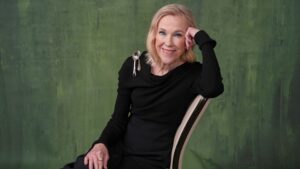The Trump administration have welcomed a group of 59 white South Africans to the United States.
They were welcomed and greeted as refugees under the argument that they are fleeing discrimination and racially based violence in their home country.
The newly arrived people are from the ethnic minority of Afrikaners, the group of whites who ruled South Africa during apartheid.
The dozens that came Monday, including families with young children, arrived via a flight chartered by the State Department.

Their resettlement in the U.S. comes as the Trump administration has shut down refugee admissions from almost all other countries, including Afghanistan, Sudan, the Republic of Congo and Myanmar.
The Afrikaners were met on arrival by U.S. Deputy Secretary of State Christopher Landau and Department of Homeland Security Deputy Secretary Troy Edgar.
Landau said that Trump’s pause of the U.S. refugee program was from the very beginning subject to exceptions when it was determined to be in the interest of the United States.
“They tell quite harrowing stories of the violence that they faced in South Africa that was not redressed by the authorities by the unjust application of the law,” Landau said.
“The United States, as we were proud to say, has stood for equal justice under law and the fair and impartial application of the law.”
Read Also

In an executive order issued on Feb. 7, Trump said the United States would help with resettling “Afrikaner refugees escaping government-sponsored race-based discrimination, including racially discriminatory property confiscation.”
He condemned what he called the country’s “shocking disregard of its citizens’ rights,” specifically stating the government had seized the agriculture property of white Afrikaners without compensating them.
The executive order also said the United States would no longer provide aid or assistance to South Africa.
It came after a new South African land law went into effect and seems to reflect the views of Elon Musk, the head of the Trump’s Department of Government Efficiency who was born and raised in South Africa.
The law has been depicted by some whites in South Africa, and some on the right in the U.S., as specifically targeting white farmers to take away their land. The South African government and experts dispute this, noting that the law allows for expropriation in cases when the land is not being used or there is a public interest in its redistribution, similar to eminent domain laws in the U.S.

Trump and his South African-born adviser Elon Musk have accused the South African government of having racist anti-white laws and policies, but the claims of persecution and genocide center on a relatively small number of violent farm attacks and robberies on white people in rural communities.
The U.S. alleges those attacks are racially motivated and the South African government is “fueling” them by allowing anti-white rhetoric in politics and not doing enough to protect Afrikaner communities. The government has condemned the farm attacks, but says their cause is being deliberately mischaracterized.
Violent attacks on farm owners in South Africa have been a problem for years but represent a small percentage of the country’s extremely high violent crime rates, which affect all races. The government says there is no targeting of white people and farm attacks are part of its struggles with crime.





